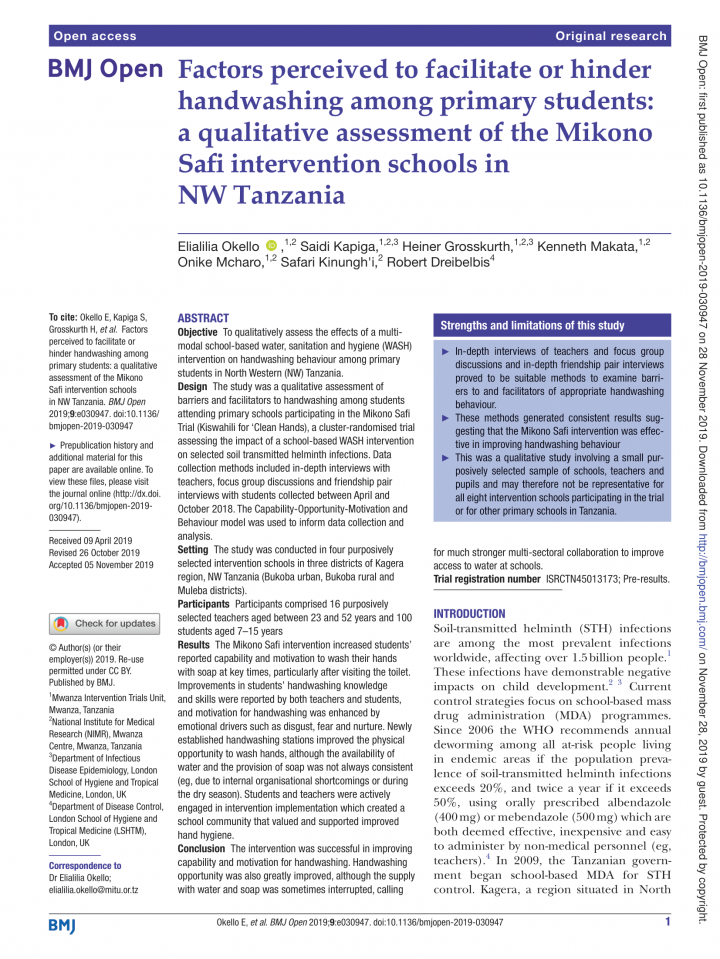Factors perceived to facilitate or hinder handwashing among primary students: a qualitative assessment of the Mikono Safi intervention schools in NW Tanzania
Okello E., Kapiga, S., Grosskurth, H., Makata, K., Mcharo, O., Kinungh'i, S., Dreibelbis, R. (2019)

Published in: 2019
Pages: 10
Publisher:
BMJ Open; 9:e030947. doi:10.1136/bmjopen-2019-030947
Author:
Okello E., Kapiga, S., Grosskurth, H., Makata, K., Mcharo, O., Kinungh'i, S., Dreibelbis, R.
Uploaded by:
SuSanA Admin
Partner profile:
common upload
2033 Views
38 Downloads
Location of library entry
The study used qualitative methods to assess the effects of a multi-modal school-based water, sanitation and hygiene (WASH) intervention on handwashing behaviour among primary students in North Western (NW) Tanzania. Barriers and facilitators to handwashing were explored in the students who participated in the Mikono Safi Trial (Kiswahili for ‘Clean Hands). The intervention increased students' reported capability and motivation to wash their hands with soap at key times, particularly after visiting the toilet. Improvements in students’ handwashing knowledge and skills were reported by both teachers and students, and motivation for handwashing was enhanced by emotional drivers such as disgust, fear and nurture. Newly established handwashing stations improved the physical opportunity to wash hands, although the availability of water and the provision of soap was not always consistent (e.g. due to internal organisational shortcomings or during the dry season). Students and teachers were actively engaged in intervention implementation which created a school community that valued and supported improved hand hygiene.
Bibliographic information
Okello E., Kapiga, S., Grosskurth, H., Makata, K., Mcharo, O., Kinungh'i, S., Dreibelbis, R. (2019). Factors perceived to facilitate or hinder handwashing among primary students: a qualitative assessment of the Mikono Safi intervention schools in NW Tanzania. BMJ Open; 9:e030947. doi:10.1136/bmjopen-2019-030947
Filter tags
English Schools Sub-Saharan Africa














